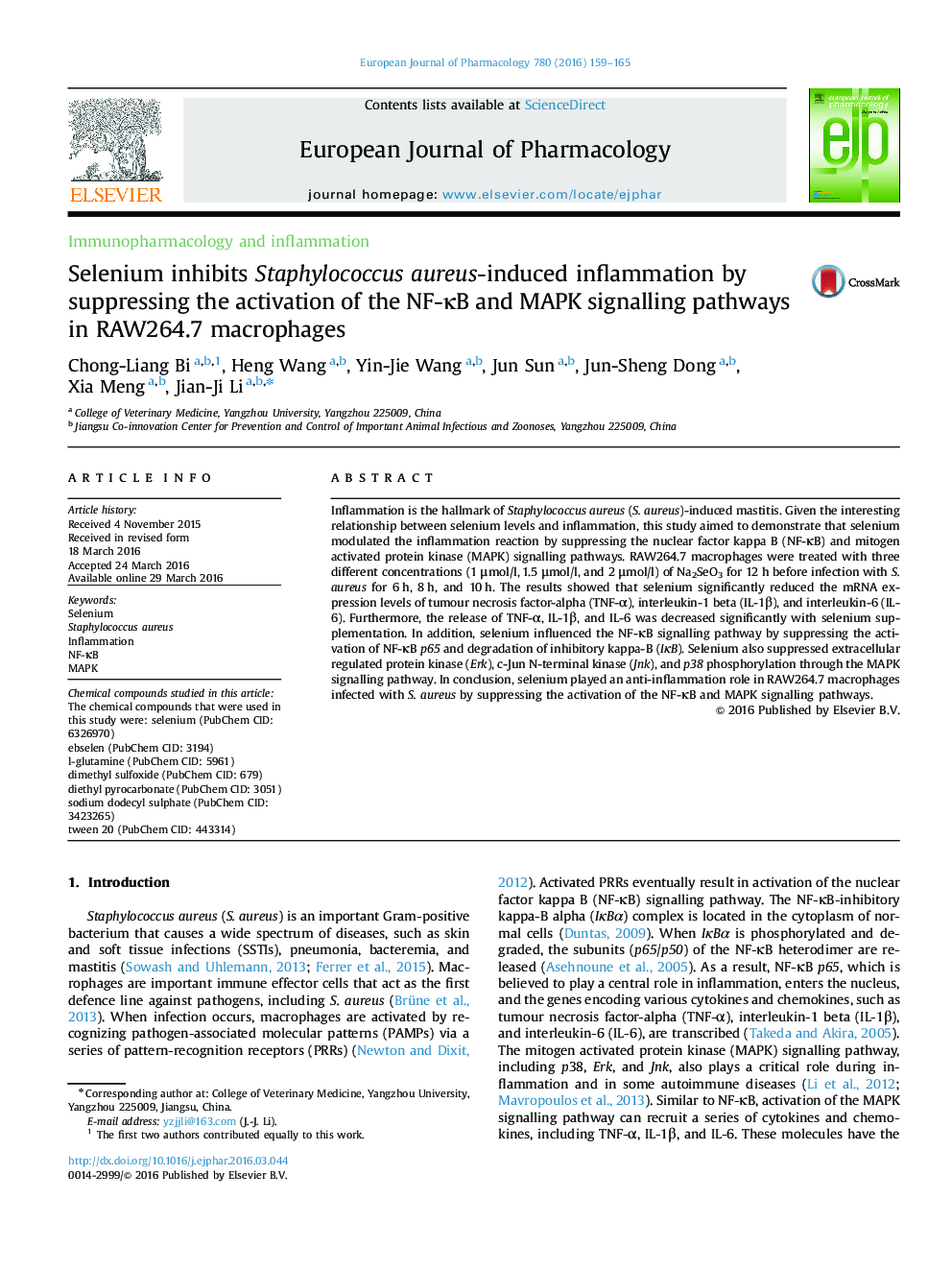| Article ID | Journal | Published Year | Pages | File Type |
|---|---|---|---|---|
| 2530943 | European Journal of Pharmacology | 2016 | 7 Pages |
Inflammation is the hallmark of Staphylococcus aureus (S. aureus)-induced mastitis. Given the interesting relationship between selenium levels and inflammation, this study aimed to demonstrate that selenium modulated the inflammation reaction by suppressing the nuclear factor kappa B (NF-κB) and mitogen activated protein kinase (MAPK) signalling pathways. RAW264.7 macrophages were treated with three different concentrations (1 μmol/l, 1.5 μmol/l, and 2 μmol/l) of Na2SeO3 for 12 h before infection with S. aureus for 6 h, 8 h, and 10 h. The results showed that selenium significantly reduced the mRNA expression levels of tumour necrosis factor-alpha (TNF-α), interleukin-1 beta (IL-1β), and interleukin-6 (IL-6). Furthermore, the release of TNF-α, IL-1β, and IL-6 was decreased significantly with selenium supplementation. In addition, selenium influenced the NF-κB signalling pathway by suppressing the activation of NF-κB p65 and degradation of inhibitory kappa-B (IκB). Selenium also suppressed extracellular regulated protein kinase (Erk), c-Jun N-terminal kinase (Jnk), and p38 phosphorylation through the MAPK signalling pathway. In conclusion, selenium played an anti-inflammation role in RAW264.7 macrophages infected with S. aureus by suppressing the activation of the NF-κB and MAPK signalling pathways.
